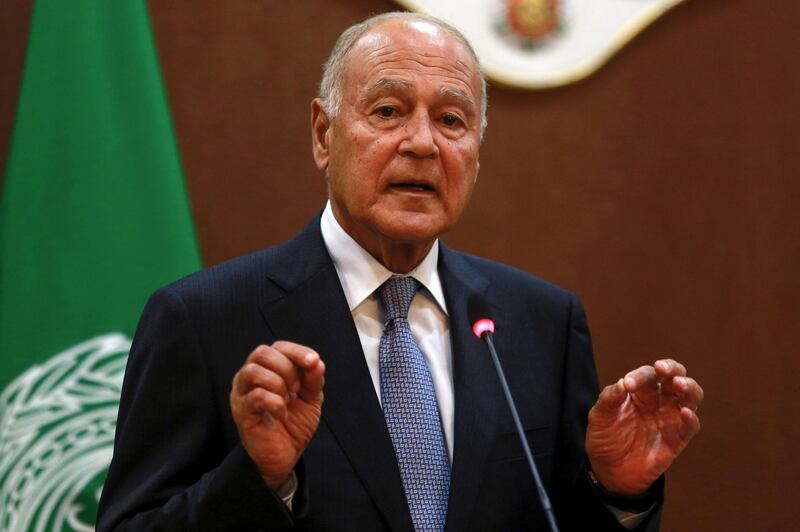Arab League foreign ministers have denounced the US announcement that it no longer considers Israeli settlements to be a violation of international law.
In an emergency meeting convened Monday, a week after the US announcement, Secretary General Ahmed Aboul Gheit called the decision “unfairly biased and unacceptable.” He says the US has forfeited its role as a neutral arbiter between Israel and the Palestinians.
US Secretary of State Mike Pompeo said on Monday that after legal consultations, the US had concluded the establishment of settlements was "not, per se, inconsistent with international law".
The Cairo-based Arab League has said the US shift was an "extremely adverse development".
Israel's ruling right-wing government on Tuesday moved swiftly to embrace Washington's backing for Israeli settlements, even as Palestinians and Arab leaders said it was a threat to the international rule of law.
Last week's announcement by Mr Pompeo abandoned the position that settlements in Israeli-occupied territory were "inconsistent with international law", reversing a stand taken under President Jimmy Carter in 1978.
Israeli Prime Minister Benjamin Netanyahu lost no time in making political capital as he struggles to remain in power following two inconclusive Israeli elections and possible criminal prosecution over corruption charges, which he denies.
"I admit that I am very moved," Mr Netanyahu said as he visited the Etzion bloc of settlements in the West Bank.
"The Trump administration has corrected a historic injustice," Mr Netanyahu said. "This is a very great day for the State of Israel and an achievement that will stand for generations."
In a video posted later on social media, Mr Netanyahu said the policy shift could pave the way for annexing the Jordan Valley in the West Bank which, during a September election campaign, the leader had pledged to annex.
However, some Israeli analysts said the announcement had little practical effect — with settlement building already in evidence under a Netanyahu government, as it had been since the area was captured from Jordan in the 1967 war.
The United Nations human rights office said the settlements remain in breach of international law, echoing a position taken by the International Court of Justice in an advisory opinion in 2004.
Mr Netanyahu has cited historical and biblical links to the West Bank in supporting Jewish settlement.
Palestinians say settlements jeopardise their goal of a state in the West Bank and Gaza Strip, with East Jerusalem as its capital.






